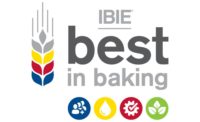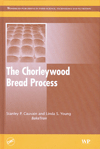Take the Stress Out of Baking
By Dan Malovany
He who works with his hands is a laborer.
He who works with his hands and his head is a craftsman.
He who works with his hands and his head and his heart is an artist.
—St. Francis of Assisi
To the purists who hold all things baking sacred, it’s simply heresy to try to automate artisan breads. However, to those savvy bakers who use their heads as well as their hearts in making sound business decisions, creating natural or organic artisan-style breads and rolls that look like they’re handmade is a nice way to make a living these days.
Just look at how companies such as La Brea Bakery have transformed the bread category. According to Chicago-based Information Resources Inc., La Brea was among the Top 10 vendors of bread, with sales of $79.1 million for the 52-week period ending April 22, 2007. Supermarket sales for the Van Nuys, Calif.-based company are up 15.9% from the year before, IRI reports. Although Nancy Silverton founded the bakery using minimal technology and an Old World, natural sour-based formula, production today is highly automated at both its East and West Coast facilities.
Just don’t tell the consumer who is buying that super-premium loaf of crusty walnut bread that the product had been par-baked, flash frozen and baked off at her local supermarket.
Yes, automating artisan bread production is like a white lie. Technically, it might be a sin, but if nobody knows an artisan bread isn’t handmade and it makes people happy, who cares?
With the advances technology over the last decade, the artisan bread market continues to expand as in-store bakeries and foodservice chains upgrade their product portfolios to meet consumer demand for better-tasting bread and rolls.
At last month’s International Dairy-Deli-Bakery Association show, for instance, companies such as Harvest Time Bread Co., Woodbridge, N.J., wowed attendees with award-winning natural and organic breads.
The same can be said about the recent Fancy Food Show in New York City, notes Gary Seiffer, Northeast regional sales manager for Rheon USA, Irving, Calif.
“Any food producer that does not recognize this demand by customers is missing the wave of the future,” Seiffer says.
Today, “commercial artisan” is not an oxymoron. Rather, says Rich Wall, director of sales for Koenig Technology, Richmond, Va., it’s an apt description of those bakers who are riding the premium sandwich wave and supplying foodservice chains with signature “ciabatta” rolls. However, unlike traditional Italian ciabatta bread and rolls with their crispy crusts and open-cell structures, more commercial versions are defined by smaller cell structures and shapes, tastes and aromas that appeal to a broader audience.
“You have to keep in mind that a ciabatta roll with a large open-cell structure will consume about a pound of mayonnaise in a sandwich, so a commercial artisan roll with a small cell structure is born,” Wall says.
A No-Stress Job
Whether a bakery’s artisan breads are pure in heart or more commercial in nature, the key to automating traditional products is reducing the stress on the dough. Rheon Stress Free bread systems have the ability to produce from 550 lb. of product per hour up to 8,800 lb. per hour. Rheon’s artisan bread line with automatic panning and moulding can crank out 2,200 lb. per hour.
Usually, these dough batches have long fermentations, often with two to three hours of floor time. Moreover, they’re sticky and difficult to handle because of their high-moisture rates, with the percentage of water in the dough as high as 85% or 90%, adds Jon Thompson, national sales director for Rheon USA.
“With Rheon Stress Free Bread systems, the natural gases and flavors still remain in the dough, even after weighing, dividing and moulding,” Thompson says “Rheon has systems that will allow the smallest bakeries up to multinational companies to produce the finest bread products in the industry.”
For Rheon, it all starts with the V4 Stress Free Dough Feeder, which can be placed at the beginning of any of the company’s makeup systems for stress-free production. Its continuous weighing systems provide accuracy during the dividing process. In addition, Thompson adds, the Stress Free Stretcher can reduce the thickness of a continuous dough sheet without damaging the gel structure of the dough.
Meanwhile, versatility is the key to the Dough Master Divider by Kaak Group North America, Lithia Springs, Ga. Developed in conjunction with Benier, the system can run traditional breads, as well as high-absorption ones, with no mechanical changeovers, notes Mike Hartnett, president of the group.
The Dough Master has a dough friendly dividing process where the knife, volume piston and slide mechanism are all independently driven by servo drives, which allows for gentle handling
Moreover, the discharge conveyor is independently driven and not attached to the divider, which allows the operator to discharge to the right or left with no mechanical changeovers.
“As a result, you can run traditional breads into a rounder and a proofer from one side and feed an artisan moulder from the other side,” Hartnett says.
Gentle Handling
At the 2006 iba bakery show in Munich, The WP Bakery Group rolled out its Crustica line, which can process traditional or Mediterranean breads ranging from flat breads to traditional boules and rustic varieties. The line is specifically designed to create products with open-cell and irregular crumb structures at rates of between 500 and 3,200 pieces an hour, depending on the item’s size.
“We wanted to come out with an artisan line that would be low stress, but we wanted it to be automated as well,” notes Shawna Goldfarb, sales manager for the Shelton, Conn.-based company.
The no-stress Voluminator divides dough pieces without degassing, while the conical rounder has adjustable rails to lightly round dough pieces. The final shaping of the loaves comes with the Combi U moulder, which allows bakers to bypass rollers for extremely delicate products or lengthen pieces for products such as French baguettes.
Meanwhile, at the International Baking Industry Exposition, which runs Oct. 7-10 in Orlando, Fla., Koenig will feature its Ceres 2.0 line, which is designed to handle dough with high-moisture levels.
The Ceres 2.0 line comes with a bowl hoist with an integrated scraping devise and a patented gravitation dough dividing unit that relies on electronic sensors to create precisely weighed pieces. The moulder applies minimal mechanical stress on the dough pieces to maintain the product’s cell structure. The line also has a bypass belt to allow bakers to produce products such as ciabatta that may not require any moulding or rounding.
Additionally, Koenig’s SFR Artisan line can produce up to 6,000 square or rounded ciabatta rolls per hour, while its high-precision SFI Artisan line can gently make more than 2,600 lb. of breads and rolls per hour.
Going forward, Hartnett explains, bakers will be looking for systems that allow them to make a wide variety of products on a single line.
“The biggest challenge facing designers and engineers working to improve makeup systems is incorporating the versatility the market is looking for while combining it with ease of operation and changeover,” he says.
In the end, bakers don’t need to use their hands to create artisan and Old World-style breads and rolls. They can do it naturally and automatically, as long as their heart is in the right place.
Editor’s Note: For more information about artisan bread production, check out Snack Food & Wholesale Bakery’s Buyer’s Guide at www.snackandbakery.com. Learn more about automation and technology by reading SF&WB’s Operations Weekly, also at www.snackandbakery.com.





